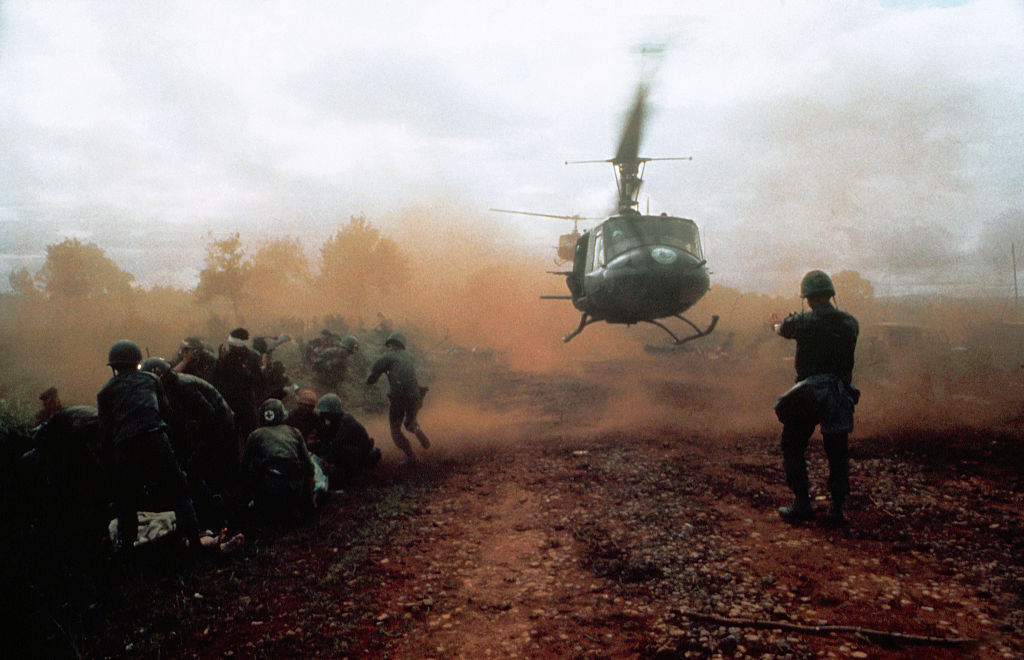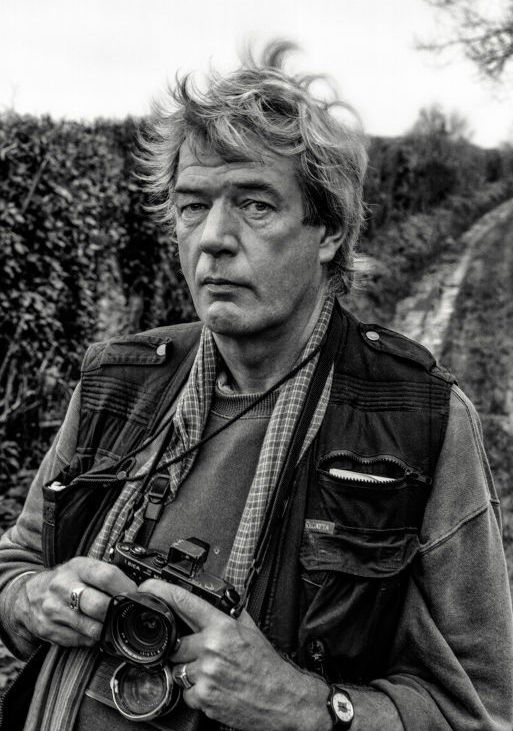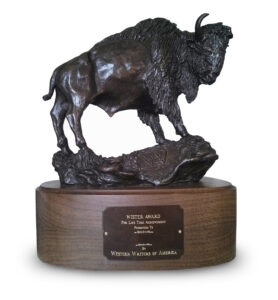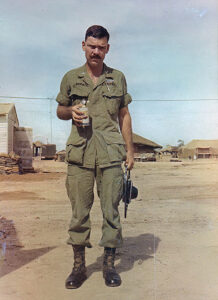Tim Page, a photojournalist acclaimed for his work during the Vietnam War, died August 24 at age 78 of cancer in New South Wales, Australia.
Born in Turnbridge Wells, England on May 25, 1944, Page grew up under the care of a foster family after his father, a sailor, was killed in a submarine attack. He left the United Kingdom in 1962 at age 17 to travel the world, leaving a note for his adopted parents saying, “Dear Parents, am leaving home for Europe or perhaps Navy and hence the world. Do not know how long I shall go for.”
A self-taught photographer, Page made his way to Laos, where he became a freelance photographer for UPI during the Laotian Civil War. Mentored by notable photographers Larry Burrows and Henri Huet, he moved to Saigon and began covering the Vietnam War, accompanying U.S. troops on missions and to dangerous locations. He worked on assignment for various major media outlets and publications, such as AP, UPI, and Paris Match.

“The role of war-photographer suited Page’s craving for danger and excitement,” according to his website. Known for his flamboyant personality, he embraced counterculture during the 1960s and 1970s. He is said to have been the inspiration for the drug-tripping photojournalist character portrayed by Dennis Hopper in the 1979 film “Apocalypse Now.” In his famed 1977 book “Dispatches,” author Michael Herr described Page as one among many “wigged-out crazies” in Vietnam who festooned his field gear with “freak paraphernalia, scarves and beads.”
Page was wounded four times in Vietnam. In the wake of an explosion in 1966, Page was badly injured and taken to a military hospital, where pieces of a grenade were removed from his face. He later wrote, “a chunk of grenade was dislodged from my nose, a spiral coil from my temple, and four more bits from lower down.” He was pronounced dead in 1969 after being wounded by the blast of a landmine explosion, but eventually made a full recovery.
After the war, Page styled himself as a “Gonzo photojournalist,” covering rock music and drug culture. He also continued to cover conflicts, including the 1967 Arab-Israeli War and the wars in Bosnia and Afghanistan. He later became an adjunct professor of photojournalism in Brisbane, Australia.
He later wrote of his time in Vietnam: “I am not sure if most, even in the depth of the soul-searching hawk and dove debates, really weren’t out there mainly for the hell of it, for the kicks, the fun, the brush with all that was most evil, most dear, most profane… the camaraderie, the sheer adventure of it all, were the biggest isms that could ever frag our hearts and minds.”





